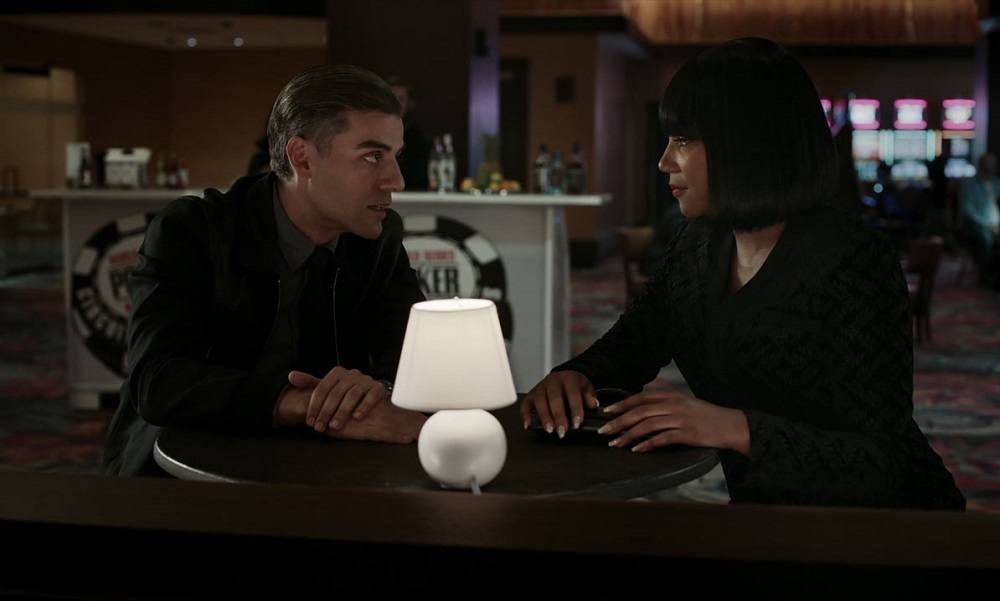The Card Counter

Oscar Isaac and Tiffany Haddish star in THE CARD COUNTER. (Photo: Focus Features)
The title character maintains his poker face on and off the casino floor in The Card Counter, which never gives away its hand.
A cast of aces, led by a powerfully understated turn from Oscar Isaac, propels this compelling character-driven thriller from veteran filmmaker Paul Schrader (First Reformed) about one man’s quest for redemption through the timeless allure of professional gambling.
The film opens with a brief tutorial on card counting from William (Isaac), a self-taught expert at beating the odds who learned his craft in prison. His quiet confidence, however, masks a troubled past filled with unresolved guilt.
He’s an eccentric loner, traveling between casinos while winning jackpots small enough to avoid detection. Details are gradually revealed about his background, which included an unpleasant experience in the military preceding his jail time.
Fellow gambler La Linda (Tiffany Haddish) offers William a chance at greater earnings with a sponsored stake in poker tournaments, but he initially refuses. “I stick to modest goals,” he explains, although a mutual spark keeps them linked.
Then he stumbles into a seminar run by a securities expert (Willem Dafoe), where William meets Cirk (Tye Sheridan), a troubled young man who becomes his sidekick. Does he see Cirk as an opportunity for mentorship to atone for his own past, or does he have ulterior motives?
At its core, The Card Counter wants to probe what’s beneath William’s slicked-back hair and icy glare. For someone whose every move at the blackjack table is so calculated, his approach to life otherwise feels reckless and impulsive. But of course, there’s more to it than holding ’em and folding ’em.
Tension simmers beneath the progressively darker surface of Schrader’s multilayered screenplay, which indulges in carefully orchestrated misdirection, just like any halfway decent card player.
Some of the themes and moral concepts are familiar to Schrader fans, although the sharp writing keeps the material fresh and vibrant. Even as the second half becomes more melodramatic and doesn’t always hold up to logical scrutiny — Haddish’s role is particularly undercooked — the character dynamics remain intriguing.
At any rate, driving the film is Isaac’s nonverbal intensity, mostly conveyed through subtle gestures, facial expressions, and body language. He knows that even when William cashes out, the house always seems to win.
Rated R, 109 minutes.